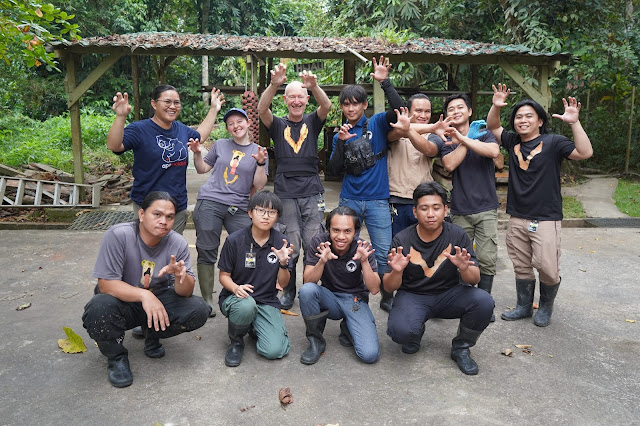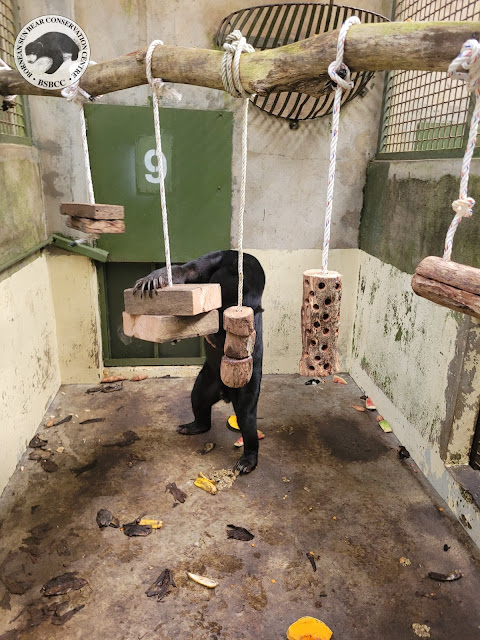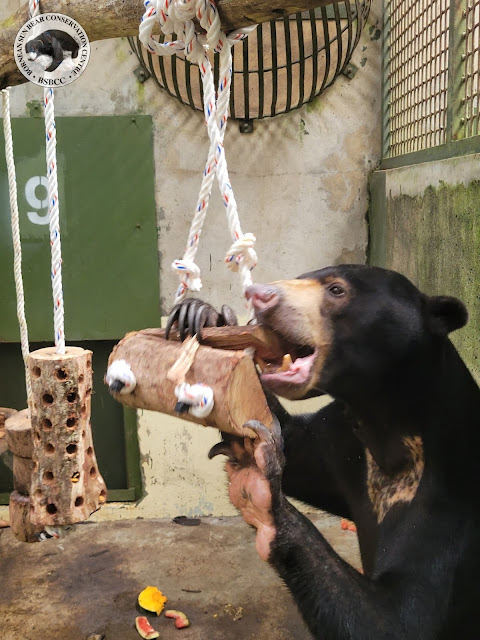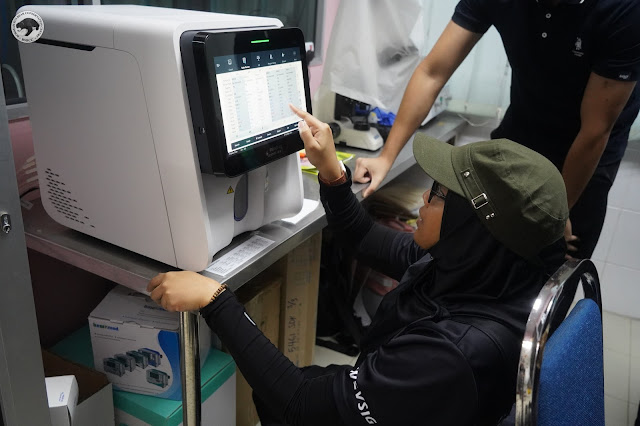Research plays an integral role in the conservation of the
least known bear species, the Malayan and Bornean Sun bear. BSBCC is dedicated
in the study of sun bears, both in-situ and ex-situ. Only with knowledge we can
help saves the species from declining.
On the 26th February to 3rd March was a busy week for BSBCC
vet and bear care team. The team showed high commitment and efficiency in the
research sampling of all our 43 sun bears. The sampling procedure involved
anesthesia, blood and mucosal swab collection, physical and dental examination,
recovery monitoring, in house laboratory work, etc. We accomplished this
sampling with great success in 5 days. All bears recovered well with no
complication.
This research was done in collaboration with UPM and UNIMAS
for the health screening of the captive sun bears. A big shout out to Dr.
Nabila Sarkawi ( Sabah Wildlife Department), Dr Azalea Hani, Muhammad Farris
and Azman Asmat (UPM), and Mr. Lim (Axir Medical) to lend us a hand in the
sampling and laboratory procedures. We are grateful to Axir Medical that
brought us the hematoanalyzer machine, to facilitate with immediate hematology
analysis of the sun bears.
The sampling has been completed but the laboratory analysis
of the diseases and blood profile have just begun. There is a lot of work to be
done, but all this is worthwhile as this research can give a comprehensive
overview of the health status, and hence impact on the health management of the
captive sun bears.
Thank you also to all of BSBCC's donors for supporting our
work here at BSBCC that has enabled us to provide the best health care for all
our 43 bears:
Yayasan Hasanah
Kementerian Kewangan
Yayasan Sime Darby




























